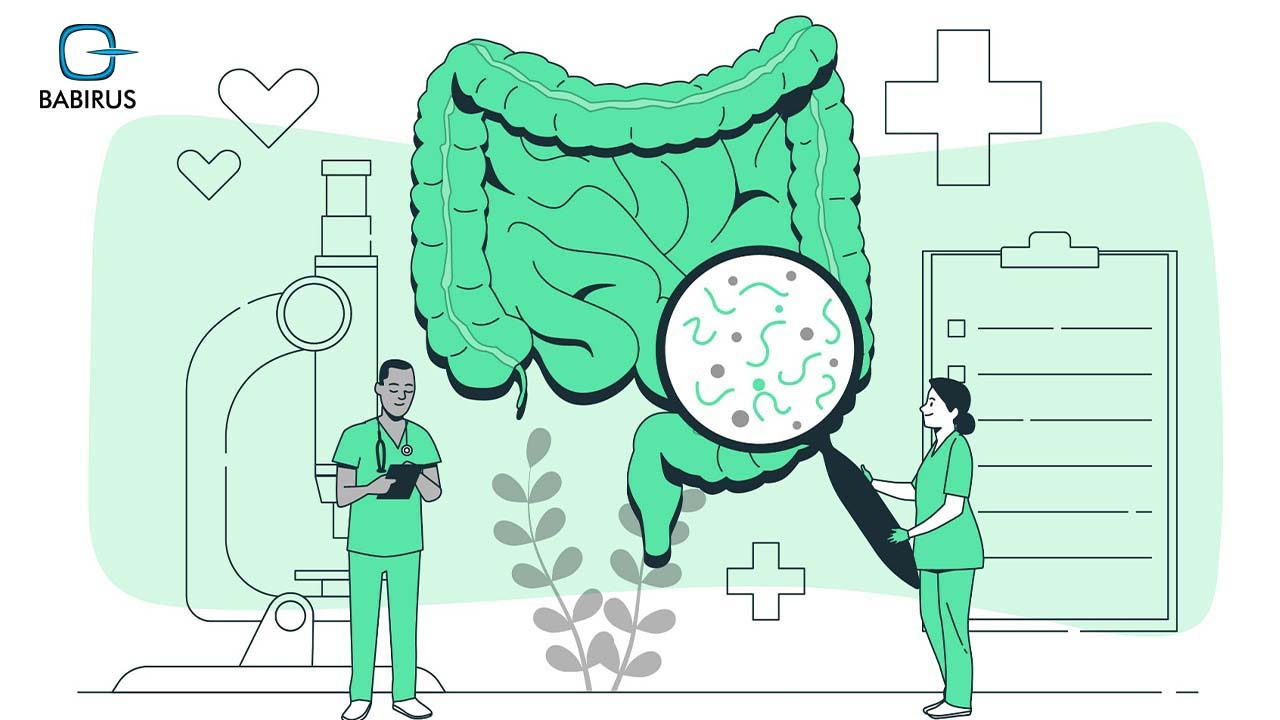Exploring Gastroenterology: A Guide to Digestive Health Disease and Common Issues

Gastroenterology is a specialty in the medical field that concentrates on the diagnosis and treatment of the digestive system’s disorders and conditions.
It is a known fact that the digestive system plays a crucial role in our general health, thus, when problems happen within this multipart system, it could cause various digestive health diseases and issues.
In this article, we will talk about gastroenterology meaning, discuss some of the most common gastroenterology diseases, with real insights into their gastroenterology symptoms, causes, and treatments.
What is Gastroenterology?
Gastroenterology covers all the done studies on the gastrointestinal (GI) tract and digestive health including organs such as the esophagus, stomach, small intestine, large intestine (colon), liver, gallbladder, and pancreas for a better digestive health investigation.
Moreover, gastroenterologists are medical professionals who specialize in diagnosing and treating conditions affecting these organs.
The GI tract is a complex system that performs numerous important functions in our bodies, including breaking down food through mechanical and chemical processes, absorbing nutrients into the bloodstream, and wasting eliminated products through bowel movements.
What is a Digestive System Disorder?
Most Common Gastrointestinal Diseases:
There are many gastrointestinal diseases to talk about, including peptic ulcers, gallstones, celiac disease, diverticulitis, hepatitis, and pancreatitis.
However, now we are going to list the most common ones and talk about each condition’s set of causes, symptoms, and treatment options.
Gastroesophageal Reflux Disease (GERD)
GERD is a chronic condition where stomach acid flows back into the esophagus, causing irritation. It can result from a weak esophageal sphincter or dietary triggers.
- Symptoms: Heartburn, regurgitation, chest pain, and difficulty swallowing.
- Treatment: Lifestyle changes, antacids, proton pump inhibitors (PPIs), or surgery for severe cases.
Irritable Bowel Syndrome (IBS)
IBS is a functional disorder affecting the large intestine, potentially triggered by diet, stress, or gut-brain axis abnormalities.
- Symptoms: Abdominal pain, bloating, gas, diarrhea, or constipation.
- Treatment: Low-FODMAP diet, stress management, probiotics, and medications for symptom relief.
Peptic Ulcers
Peptic ulcers are open sores in the stomach lining or duodenum, often caused by H. pylori infection or prolonged NSAID use.
- Symptoms: Burning stomach pain, bloating, nausea, and black stools in severe cases.
- Treatment: Antibiotics for H. pylori, acid reducers, and avoiding irritants like alcohol and spicy foods.
Inflammatory Bowel Disease (IBD)
IBD includes Crohn’s disease and ulcerative colitis, characterized by chronic inflammation in the digestive tract.
- Symptoms: Persistent diarrhea, abdominal pain, weight loss, and fatigue.
- Treatment: Anti-inflammatory drugs, immunosuppressants, biologics, dietary changes, and surgery if needed.
Constipation
Constipation is characterized by infrequent or difficult bowel movements, often linked to low fiber intake or a sedentary lifestyle.
- Symptoms: Hard stools, bloating, and a feeling of incomplete evacuation.
- Treatment: Increased fiber, hydration, physical activity, and laxatives if required.
Diarrhea
Diarrhea involves frequent, loose stools, which may result from infections, dietary issues, or underlying diseases.
- Symptoms: Watery stools, abdominal cramps, and dehydration risk.
- Treatment: Hydration, electrolyte replacement, anti-diarrheal medications, and treating the underlying cause.
Gallstones
Gallstones are hardened deposits in the gallbladder that can block bile ducts.
- Symptoms: Severe pain in the upper abdomen, nausea, vomiting, and indigestion.
- Treatment: Dietary adjustments, medications to dissolve stones, or gallbladder removal surgery.
Celiac Disease
Celiac disease is an autoimmune disorder where gluten damages the small intestine lining, impairing nutrient absorption.
- Symptoms: Chronic diarrhea, weight loss, bloating, and malnutrition.
- Treatment: A strict gluten-free diet and nutritional supplements for deficiencies.
Diverticular Disease
This condition involves the formation of small pouches (diverticula) in the colon that can become inflamed or infected (diverticulitis).
- Symptoms: Abdominal pain, fever, bloating, and changes in bowel habits.
- Treatment: High-fiber diet, antibiotics for infections, and surgery for severe cases.

Can gastrointestinal diseases be prevented?
Basic Gastroenterology Tests:
Gastroenterology tests are the first move in diagnosing and managing gastrointestinal disorders effectively, as they share with you valuable insights about the structure and function of the digestive system.
· Upper Gastrointestinal Endoscopy:
Upper gastrointestinal endoscopy, also known as esophagogastroduodenoscopy (EGD), is a common procedure used to examine the upper part of the GI tract.
During this test, a soft tube with a camera attached (endoscope) is inserted through the mouth to the esophagus, stomach, and duodenum to get a clear visual inspection of these areas and collect tissue samples, if required, for further analysis.
· Colonoscopy:
Colonoscopy is a procedure used to examine the large intestine (colon) and rectum, done by inserting a long and flexible tube with a camera (colonoscope) through the anus and advancing it through the entire colon.
A colonoscopy is usually done to detect abnormalities such as polyps, ulcers, or tumors, moreover, it allows polyps to be removed and tissue samples collection for biopsy.
· Capsule Endoscopy:
Capsule endoscopy is a non-invasive test that involves swallowing a small, pill-sized camera capsule that will travel through the digestive system, and capture images of the esophagus, stomach, small intestine, and colon. Moreover, these images will be transmitted to a recording device worn by the patient.
Capsule endoscopy is mainly valuable for diagnosing conditions such as Crohn’s disease, celiac disease, and obscure gastrointestinal bleeding.
· Endoscopic Retrograde Cholangiopancreatography (ERCP):
ERCP is a dedicated procedure used to diagnose and treat disorders of the bile ducts and pancreas ducts.
This procedure is done to enable X-ray imaging for bile ducts and pancreatic ducts by passing an endoscope through the mouth and into the duodenum to access the ducts, then a contrast dye is injected.
ERCP is used to identify conditions such as gallstones, tumors, or strictures.
· Liver Biopsy:
A liver biopsy is done to estimate liver function and diagnose liver diseases by taking a small sample of the liver tissue by using a needle inserted through the skin into the liver.
Then, this sample is examined under a microscope to perceive any abnormalities such as inflammation, fibrosis, or cirrhosis.
· Breath Tests:
Breath tests are non-invasive diagnostic tools that are used to identify different gastrointestinal conditions by measuring the levels of certain gases in a patient’s breath after consuming specific substances.
For example, lactose intolerance can be diagnosed using a lactose breath test, while bacterial overgrowth in the small intestine can be detected using a hydrogen breath test.
6 Effective Gastroenterology Treatment:
Digestive health conditions not only impact our ability to eat but also our general health, thus, working to improve digestive health is something that you should not ignore, here are some essential tips:
1. Have a balanced diet:
By adding a variety of fruits, vegetables, whole grains, lean proteins, and healthy fats to your diet, moreover, avoid extreme eating of processed foods that are rich in sugar and unhealthy fats.
2. Stay hydrated:
Drink a suitable amount of water throughout the day to support digestion and prevent constipation, however, you must note that the amount of water is related to your weight and lifestyle.
3. Exercise regularly:
Regular physical activity helps stimulate digestion and promotes bowel regularity, therefore, make sure to include 30 minutes daily in your routine.
4. Manage stress:
Chronic stress can disrupt the normal functioning of the digestive system, thus, exercise stress management techniques such as meditation, deep breathing exercises, or engaging in hobbies you enjoy.
5. Avoid smoking and excessive alcohol consumption:
Both smoking, including negative smoking, and heavy alcohol intake can have detrimental effects on the digestive system, thus, it is preferable to avoid them as possible.
6. Medicine Management:
As listed above, there are various treatment options available for gastroenterological conditions, and many of them involve the use of medicine to cease syndromes and help patients live normal lives.
These are the most popular used medications:
- Acid-suppressing medications.
- Anti-inflammatory drugs.
- Antibiotics.
- Immunomodulators and biologics.
- Antispasmodics.
- Laxatives.
- Anti-diarrheal medications.
To Sum up,
Knowing about gastroenterology, its related symptoms, treatments, and tests is essential to protect your digestive system and general health from different gastroenterology diseases.
Thus, follow the best tips and practices to improve your gastroenterology health effectively, and do not forget to contact us to find out about the best healthcare providers.
